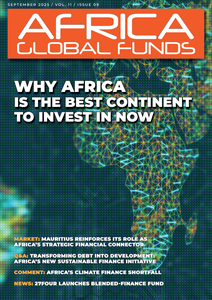Description
Africa is poised for historic economic growth, driven by a young, expanding workforce, rapid urbanization, and a rising middle class. Improvements in business environments and infrastructure, supported by institutions like the IMF and AfDB, create strong investment opportunities in finance, healthcare, education, technology, and more. According to Albert Alsina of Mediterrania Capital Partners, the firm demonstrates success through impactful investments in healthcare and construction, expanding access and creating jobs. He argues that Africa’s digital adoption, urban growth, and consumer demand fuel multi-decade growth. (p.8-10).
Mauritius is solidifying its role as Africa’s strategic financial connector, linking global capital to the continent’s evolving investment landscape. The island nation excels as an International Financial Centre, supporting sustainable finance, innovation, and cross-border investments, as discussed at an exclusive panel discussion hosted by IQ-EQ in Johannesburg in August. Panelists highlighted Mauritius’s growing importance in ESG regulation, tech adoption, and collaboration among investment bodies. Read on p13-14.
African governments spend over $100bn annually on debt service, limiting funds for climate and development. To address this, FSD Africa, UNECA, and CIFF launched a program to embed sustainable finance into sovereign debt management, helping countries refinance on better terms and mobilize capital for priority sectors. In this month’s issue, we spoke with Cecilia Bjerborn Murai, Principal Specialist, Sustainable Finance at FSD Africa, to learn more. Read on pp.16-17.
In addition, Africa faces a $2.5trn climate finance gap by 2030 but receives only $44bn annually—less than 20% needed. Most funding comes from international donors, while domestic finance remains underdeveloped. Unequal fund distribution and institutional challenges hinder progress (Read on p.22).

